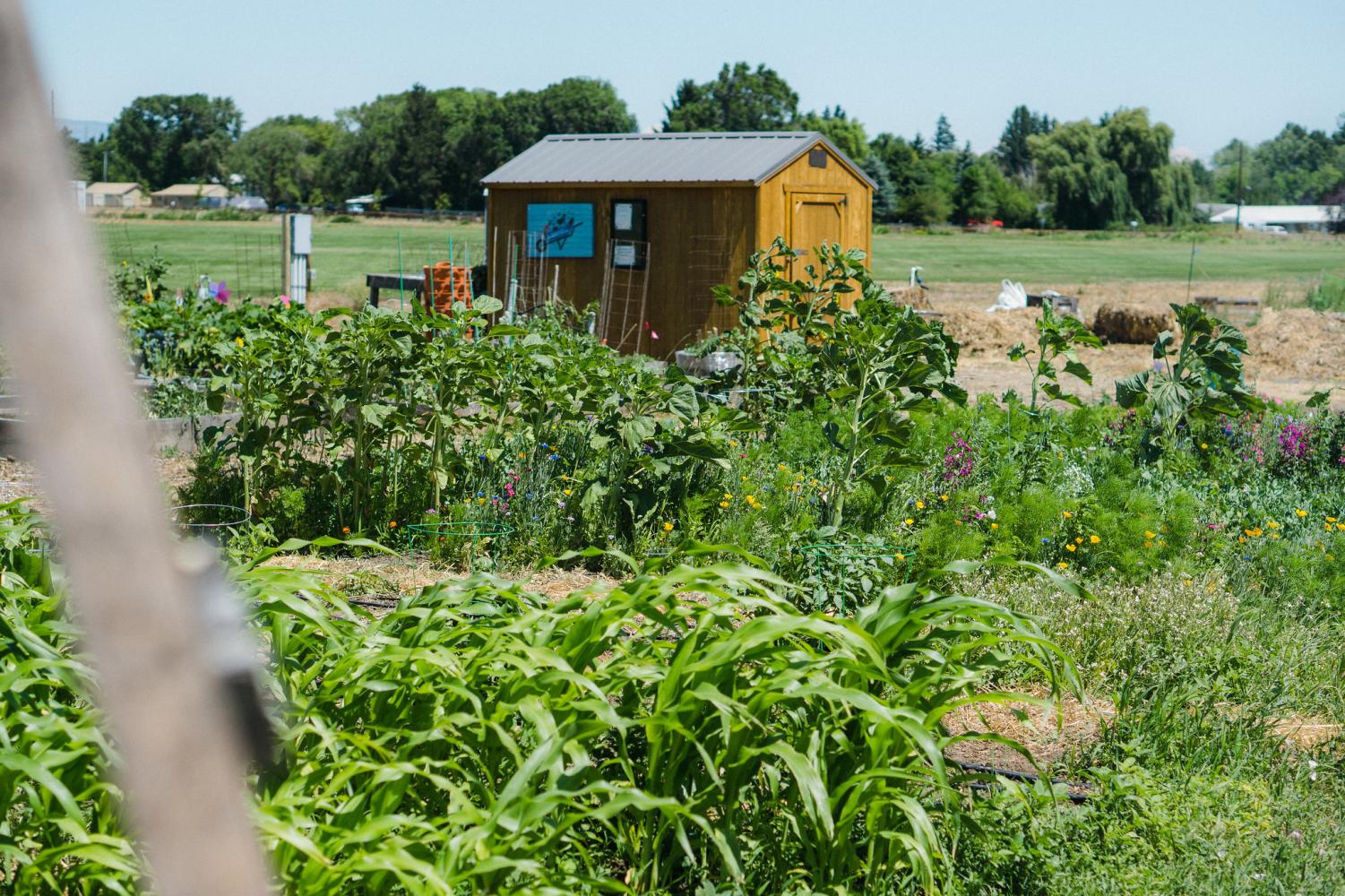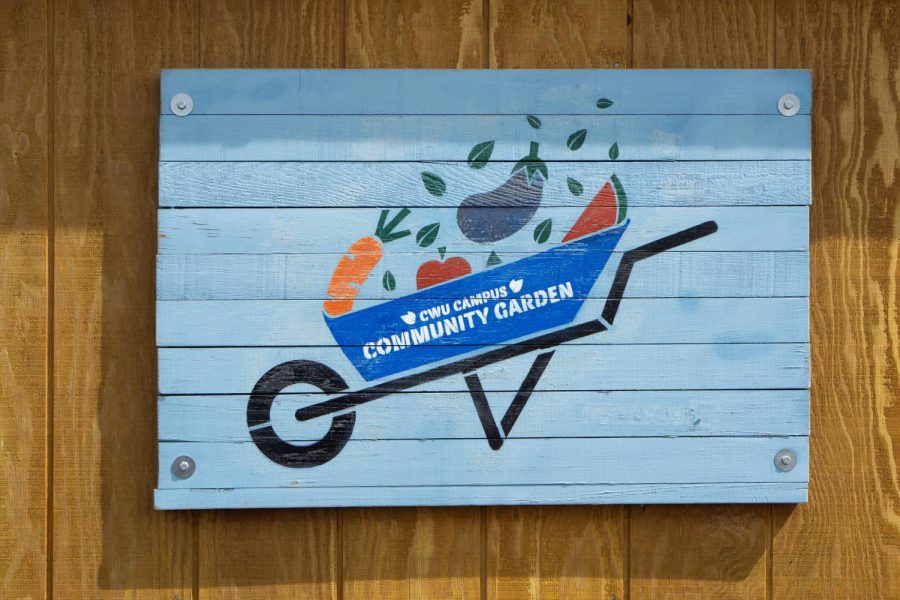Wildcat Community Farm hosts event to reach out to students
The Wildcat Farm is located east of campus on Alder Street.
February 2, 2022
Street.The Community Garden within the Wildcat Community Farm located on Alder Street east of campus allows students multiple opportunities including seeds being distributed, a free plot with members being able to take their own produce home and gardening assistance when necessary.
Recently, the Community Garden hosted a meeting to inform students of these opportunities. The farm operates from April to October and any member of the Ellensburg community can join.
“We don’t have a fence, we’re an open community space,” Farm and Sustainability Manager Kate Doughty said.
Doughty noted how important it is for people to be introduced to fresh fruits and vegetables as well as sustainable growing methods.
“My family didn’t garden much when I was young, so I remember when I started working at community gardens when I was younger,” Doughty said. “I was shocked by what brussel sprouts looked like.”
The farm employs sustainable growing methods such as natural composts and fertilizers as well as crop rotation, the act of changing what types of produce are grown in what areas to prevent the vitamins and minerals of the soil from being used up faster than they can generate nutrients to produce healthier soil and crops. While the farms are not certified as organic, they do comply with organic regulations.
 According to Doughty, there are also biology classes on campus that could benefit from the hands-on experience that a visit to the garden could provide, in addition to workshops hosted by the garden outside of curriculum and classes.
According to Doughty, there are also biology classes on campus that could benefit from the hands-on experience that a visit to the garden could provide, in addition to workshops hosted by the garden outside of curriculum and classes.
Another note Doughty made was how the community farm doesn’t just provide the chance for students and members of the Ellensburg community to learn how to grow different forms of produce, but it’s also a great way to build community. Anyone can become a member of the Wildcat Community Garden as long as they are willing to invest time in it.
“The best part about food is that we all have such deep connections to it,” Doughty said. ”It really opens up the possibility for such meaningful connections.”
Community members will be given their own plot of land to grow produce on, and anything grown on a community member’s plot can be taken home with them. Members will be expected to water and harvest their own plot, but assistance can be arranged if they are gone for an extended period of time.
In addition to having access to their plot, members can ask their more experienced peers any questions they might have about gardening. Seeds and transplants will be provided. There are 48 plots of land in total, and students have priority when picking plots. There are some plots being used by local food banks.
In order to use the space, community members must volunteer for at least six hours every month. This could be weeding the path, taking care of someone’s plot who needs help, assisting with the foodbank plots or miscellaneous chores around the farm.
According to Doughty, while the produce that is grown is typically taken home with the community member who grew it, in the event that they can’t take it home the produce will either be given to the local food banks or to the Presidents United to Solve Hunger (PUSH) pantries that can be found on campus. In addition to this, the Wildcat Community Farm also provides produce for Dining Services from designated plots.
The meeting mentioned that a Sustainability Living and Learning Community is being established in Wendell Hill Hall in the fall, and further information about that will be released.
Those interested will be able to sign up to volunteer starting the second week of February. More information regarding the Wildcat Community Farm can be found on their Instagram page @cwufarm.


